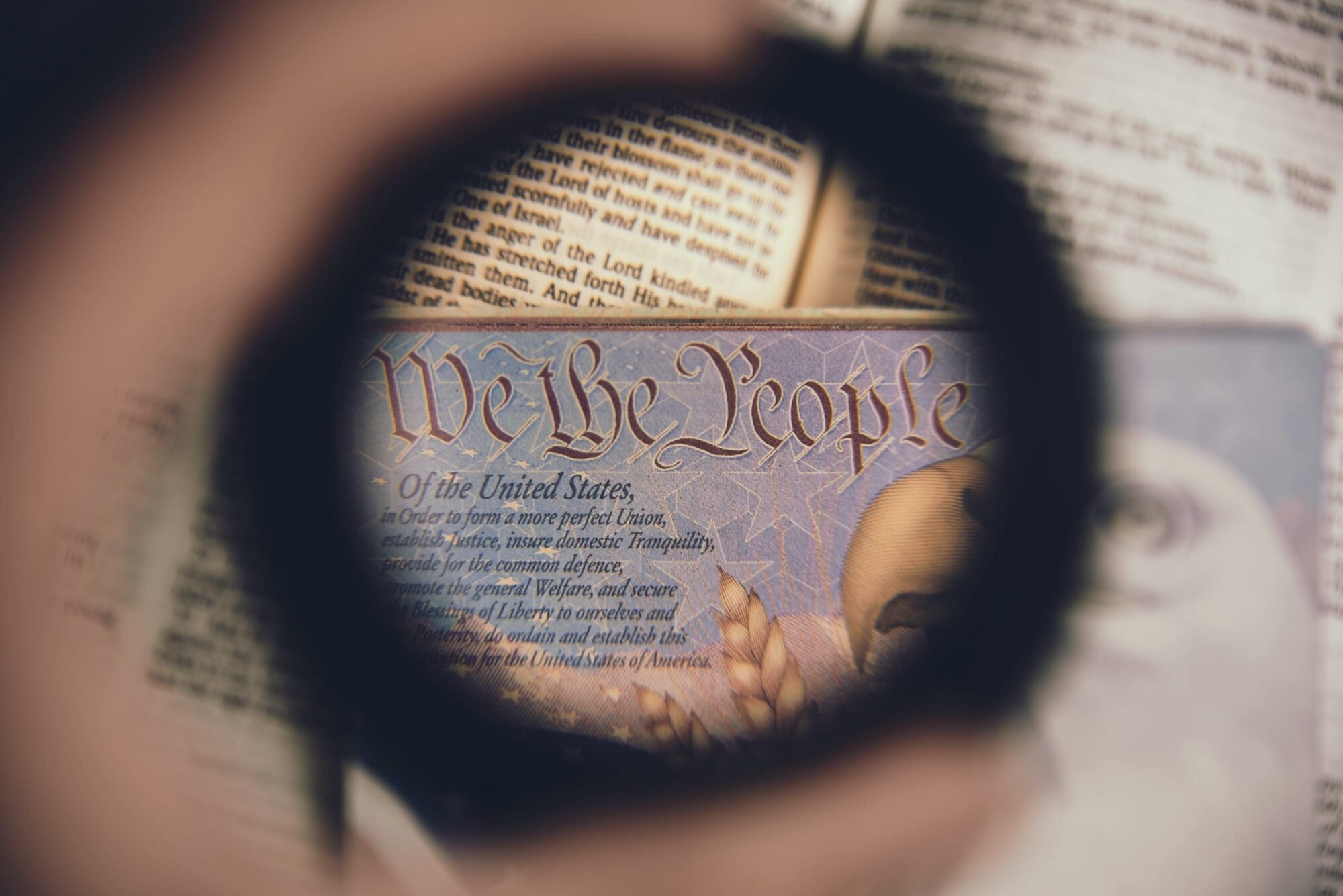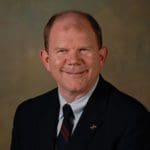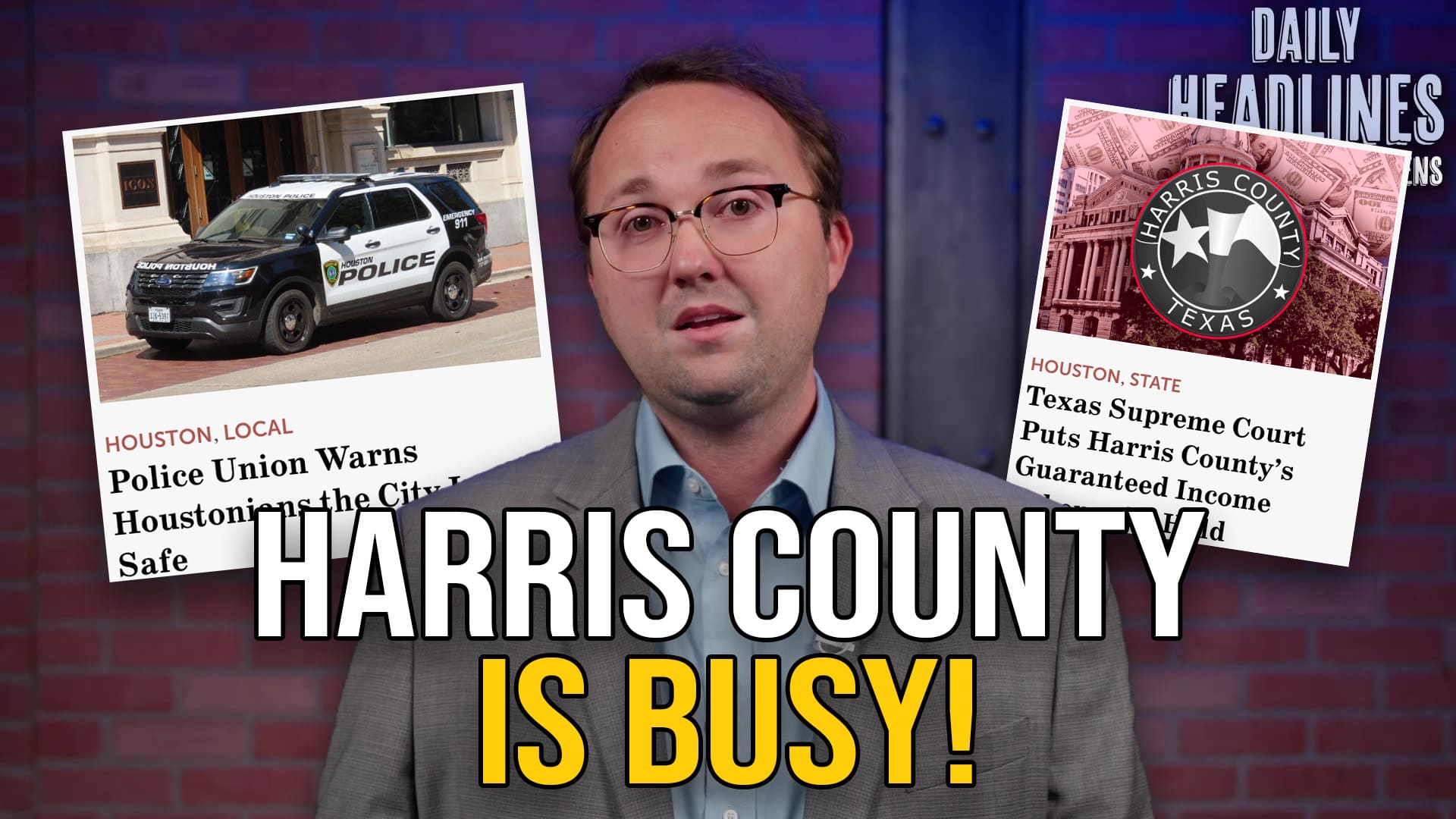My church decided to have gathered worship this past Sunday in Austin, Texas, after being prohibited from worshipping and enjoying the Lord’s Supper together for more than a month.
During a discussion about whether our worship would be in violation of the city of Austin’s and Travis County’s shelter-in-place orders, which they recently extended through May 30, a friend wrote:
“Austin is a home-rule city and can adopt whatever laws it wants to protect public health and safety. The only limitation is that an ordinance cannot be inconsistent with the Texas Constitution and statutes (or federal law).”
This statement is based on two concepts. The first is “police power,” the ability of a government to “adopt whatever laws it wants to protect public health and safety.” More on this below.
The second is the fact that cities are creations of states, and thus subservient to state (and federal) laws. So one question to answer here regarding the legality of our church service is: Do the shelter-in-place orders violate state or federal law?
Here is the Austin order in question:
“All individuals currently living within the City of Austin are ORDERED [emphasis in original] to stay at home or at their place of residence and to practice the Social Distancing and Face Covering Behaviors as set forth in Sections 2 and 3 and Exhibits A and C, unless excepted by this Order. Subject to the requirements of this Order, all persons may leave their residences only for Essential Services and Essential Activities, or to work in or access Essential Businesses, Reopened Services, Essential Government Service, or Critical Infrastructure, or to perform Minimum Basic Operations … ”
Here is one provision in the Texas Constitution’s Bill of Rights with which the order might be inconsistent:
“Sec. 27. RIGHT OF ASSEMBLY; PETITION FOR REDRESS OF GRIEVANCES. The citizens shall have the right, in a peaceable manner, to assemble together for their common good; and apply to those invested with the powers of government for redress of grievances or other purposes, by petition, address or remonstrance.”
One might reasonably see in our right of assembly, then, that we are allowed to leave our homes whenever we want to assemble for our common good—like, say, to worship Christ together. We also have a right of expression/assembly under federal law. Thus, it is fair to argue that Austin’s and Travis County’s edicts are inconsistent with the state and federal constitutions.
On one side, then, is a defense of Christian worship using a right enumerated in both state and federal law.
On the other side is the defense of the legality of lockdowns (state and local) using the amorphous judicial construct of police power. The Cornell Law School defines police power as:
“The fundamental right of a government to make all necessary laws. In the United States, state police power comes from the Tenth Amendment to the Constitution, which gives states the rights and powers ‘not delegated to the United States.’ States are thus granted the power to establish and enforce laws protecting the welfare, safety, and health of the public.”
Police power has been used and abused for tyrannical purposes by a lot of jurisdictions in this state and country, such as this use by the city of Dallas:
“Hinga Mbogo came to America from Kenya for an education; he wound up living the American dream. His 30-year-old automotive repair shop on Dallas’ Ross Avenue has provided a living for his family and employees while satisfying thousands of customers.
“Sadly, part of his dream may be coming to an end. The Dallas City Council voted to shut down his blue-collar business to make room for more aesthetically pleasing uses such as upscale apartments or, as a council member stated, businesses like ‘Starbucks and the Macaroni Grill.’”
Mr. Mbogo, the Woodard family, and others like them were forced to give up their auto-related businesses along Ross Avenue because of the city’s “police power.”
There is also the case of Heather Stewart:
“After Heather Stewart left her Dallas home in 1991, it was vacant, boarded up, and without utilities for about a decade. Only the occasional vagrant used it for lodging.
“The house was repeatedly found in violation of the city code by enforcement officials before the Dallas Urban Rehabilitation Standards Board declared the building an “urban nuisance” and the city demolished it in 2002.
“Since the house was declared a nuisance, the city offered Stewart no compensation.”
They tore it down without paying for it under the city’s “police power.” Fortunately, in this case—unlike with Mr. Mboga and the Woodards—the Texas Supreme Court stepped in and ruled that the city had inappropriately used its police power, forcing Dallas to pay Ms. Stewart.
What a lot of people who point to the 10th Amendment as allowing a government to “adopt whatever laws it wants to protect public health and safety” forget is the actual text of the 10th Amendment:
“The powers not delegated to the United States by the Constitution, nor prohibited by it to the states, are reserved to the states respectively, or to the people.”
That’s right, the people. The courts seem to have forgotten that as well. I am not a constitutional law expert, but I am quite sure that the courts have spent a lot more time developing the doctrine of “police power” than the doctrine of “people power.”
As for myself, I’ll go with the actual provisions of the Texas and U.S. constitutions rather than tortured explanations of some Travis County judge of how the police state, er, power overrides their plain text.
In addition to the legality of shelter-in-place orders, there seems to be the thought by a LOT of people—even Christians and conservatives—that if the government doesn’t tell us what to do about COVID-19, and make us do it, a lot of us are going to die. Or at least that, in our selfishness, we will make a lot of vulnerable people die.
However, the truth is that the government’s actions in response to COVID-19 are likely to lead to more deaths and more harm to society than would have been the case if most citizens (both the Bible and the law appear to make room for the isolation of sick and infectious people) would have been given the needed information and allowed to make decisions themselves. Government leaders are at least as selfish as your average citizen and thus often make selfish decisions that benefit themselves more than the constituents they serve. And the small numbers of leaders in government are actually more ignorant than the collective wisdom of the citizenry—it is nothing personal, just a simple matter of numbers—and thus make less informed decisions.
If Joseph was at the helm, I’d cut him some slack; after all, he was a prophet with access to God’s direct revelation. But our current leaders are not prophets. I respect them as leaders, but that doesn’t mean they get to do whatever they want to do. Too often those in government seem to forget the constraints placed on them to be “God’s servant for [our] good,” “not a terror to good conduct, but to bad” (Romans 13:3-4).
Of course, neither do citizens get to do whatever we want. We are constrained by both human law and God’s law “to do justice, and to love kindness, and to walk humbly with [our] God” (Micah 6:8). In the present situation, that would include isolating ourselves if we are infected and perhaps practicing social distancing to prevent the spread of COVID-19.
In pandemics and any situation when the government has too much power—which is most situations these days—society is generally worse off when government officials make decisions that should have been left to the citizens. So I am grateful that, legal or not, my family was able to join with other saints this past Sunday in worshipping and feasting with our risen Lord Jesus Christ.
This is a commentary submitted and published with the author’s permission. If you wish to submit a commentary to Texas Scorecard, please submit your article to submission@texasscorecard.com.





